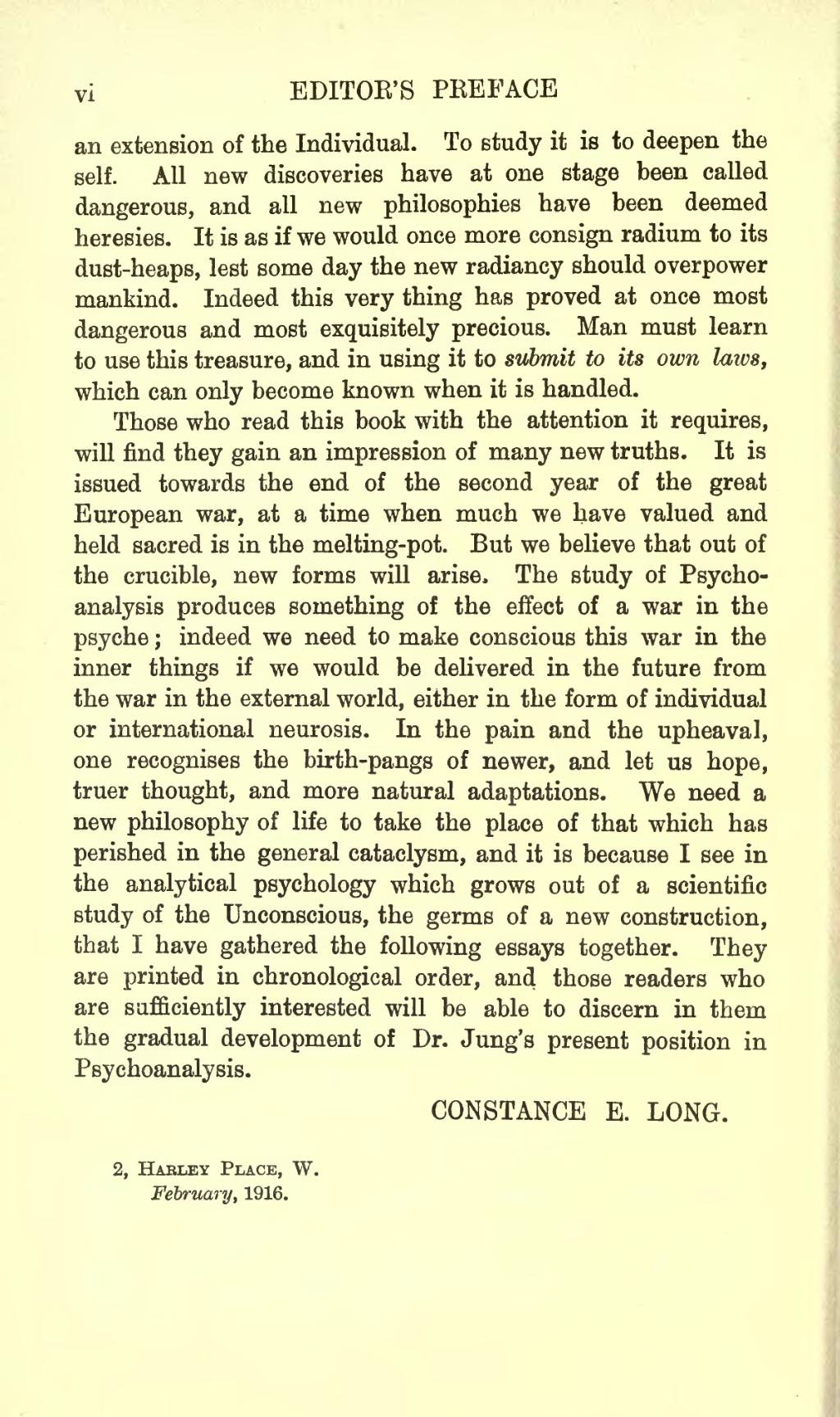an extension of the Individual. To study it is to deepen the self. All new discoveries have at one stage been called dangerous, and all new philosophies have been deemed heresies. It is as if we would once more consign radium to its dust-heaps, lest some day the new radiancy should overpower mankind. Indeed this very thing has proved at once most dangerous and most exquisitely precious. Man must learn to use this treasure, and in using it to submit to its own laws, which can only become known when it is handled.
Those who read this book with the attention it requires, will find they gain an impression of many new truths. It is issued towards the end of the second year of the great European war, at a time when much we have valued and held sacred is in the melting-pot. But we believe that out of the crucible, new forms will arise. The study of Psychoanalysis produces something of the effect of a war in the psyche; indeed we need to make conscious this war in the inner things if we would be delivered in the future from the war in the external world, either in the form of individual or international neurosis. In the pain and the upheaval, one recognises the birth-pangs of newer, and let us hope, truer thought, and more natural adaptations. We need a new philosophy of life to take the place of that which has perished in the general cataclysm, and it is because I see in the analytical psychology which grows out of a scientific study of the Unconscious, the germs of a new construction, that I have gathered the following essays together. They are printed in chronological order, and those readers who are sufficiently interested will be able to discern in them the gradual development of Dr. Jung’s present position in Psychoanalysis.
CONSTANCE E. LONG.
- 2, Harley Place, W.
- February, 1916.
